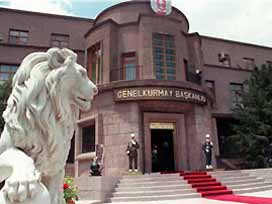Bayramoğlu: Turkey should reconsider its approach to the Kurds
Ali Bayramoğlu in Yeni Şafak writes that the geopolitical winds are behind PKK-PYD and against Turkey. Turkey does not have any card up its sleeve that it can deploy to stop the Kurdish region in Syria that it sees as an existential threat. As long as this balance persists across the border, it is not reasonable to expect that Kandil (the headquarters of PKK in northern Iraq) is going to abandon its attempts to establish areas of sovereignty, its strategy of creating cantons, by means of urban warfare and the politics of ditches. The statements of the authorities promising that “soon the cleaning will be finished, and public order will be established,” appear naïve considering past events and the present balances of power. This is so even though a significant part of the population in the region does not approve of the actions of the PKK. This does not mean that they have edged closer to the approach of the state and its position. Isn’t it time that Turkey revises its reading of the region, its view of the Kurdish movements, the Kurdish question and its roadmap for the future?
Terror Likely to Strengthen Turkish Militarism
By Halil Karaveli
February 19, 2016
The wave of terror that has struck Turkey since last year is likely to have the cumulative effect of bolstering militarism as a response to the country’s Kurdish challenge. For the Turkish public in general, the February 17 bombing of the military convoy in Ankara, followed by a similar attack outside Diyarbakır the next day, are bound to serve as reminders that the armed forces are paying a heavy prize in what a majority of the population sees as a fight to preserve the unity of the fatherland. Ultimately, that will also have an impact on the power balance between the civilian and military wings of the Turkish regime.

Cemal: Öcalan is Indispensable for Peace
Hasan Cemal on t24 news site comments on a recent book by Abdullah Öcalan, “The Notes of İmralı”, about the negotiations between the Turkish government and the imprisoned leader of PKK. The book confirms that “solution” for Erdoğan meant the disarmament of PKK. And for this purpose, Erdoğan was holding out a carrot for Öcalan – his gradual liberation. Erdoğan used the “solution process” only to win votes at the ballot. Or he started the process with only this objective in mind. The book shows that Öcalan was always clearly aware that Erdoğan at some point was going to reopen the door for a period of violence. My two main impressions after reading the book are first that Öcalan this time was not fooled by the classical tactics of the Turkish state to drive a wedge between Kandil and Öcalan and to split the PKK. Second, one has to salute Öcalan for the leading role for peace that he plays today, despite having endured solitary confinement in a cell for fifteen years. Lastly: If we say solution and peace, then we have to acknowledge that Öcalan’s leading role is vitally important.
Turkey Bets, yet again, on Barzani: Turkey-KRG Relations in Light of the Regional Turbulence
By Gallia Lindenstrauss
February 4th, 2016, The Turkey Analyst
In view of the challenges Turkey is facing in the Middle East, Ankara is attempting to further solidify its relations with the Kurdish Regional Government (KRG) and specifically with KRG’s president, Massoud Barzani. While this policy may assist Turkey in increasing its influence over the future of Iraq and assist it in diversifying its energy suppliers, it is less likely to help Turkey in its internal struggle with its Kurdish minority, or in countering the Kurdish aspirations in Syria. Yet, as the only still relevant remnant of Turkey’s ‘zero Problems’ policy, Turkey-KRG relations do have the potential to assist Ankara in maintaining and solidifying its influence over the future of Iraq.
Dreams and Nightmares: Turkey’s Unspoken Drift towards Civil War
By Gareth H. Jenkins
February 1st, 2016, The Turkey Analyst
The sustained clashes in urban areas that have wracked southeast Turkey in recent months mark a new stage in the decades-old insurgency of the Kurdistan Workers’ Party (PKK) and threaten to escalate into a full-blown civil war. Although it is still not too late to pull the country back from the brink, neither the Turkish government nor its Western allies appear aware of the extent of the danger that it is facing.





